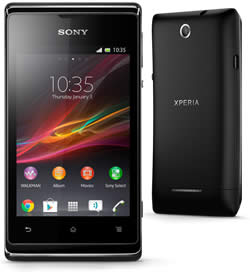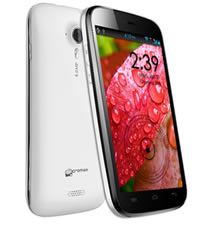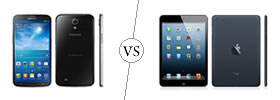Difference between Sony Xperia E and Micromax A 116
Key difference: The Sony Xperia E and E-Dual are two entry-level phones from Sony Mobile. The phone comes with a 3.5 TFT capacitive that has a ~165 ppi pixel density. It comes with a 1 GHz Cortex-A5 Qualcomm Snapdragon processor, an Adreno 200 GPU and 512 MB RAM. The Micromax A116 Canvas HD is the successor to the really popular Micromax A110 Canvas 2 and is better than its predecessor in every way. It features a 5.0 inch display with a resolution of 720 x 1280 pixels. It runs on a Quad-core 1.2 GHz Cortex-A7 and 1 GB of RAM.
 Sony is a popular smartphone company and has been launching popular phones under the Xperia Brand. Since, its separation with Ericsson, the company has introduced multiple phones in different ranges to cater to all types of demands. The widespread demand of smartphones has required many companies to start manufacturing low-end phones for the masses. The new 2013 line-up of Sony phones include the Sony Xperia E and E-Dual phones. These phones are identical to each other and only differ in some features.
Sony is a popular smartphone company and has been launching popular phones under the Xperia Brand. Since, its separation with Ericsson, the company has introduced multiple phones in different ranges to cater to all types of demands. The widespread demand of smartphones has required many companies to start manufacturing low-end phones for the masses. The new 2013 line-up of Sony phones include the Sony Xperia E and E-Dual phones. These phones are identical to each other and only differ in some features.
The Sony Xperia E and E-Dual are two entry-level phones from Sony Mobile. These are the few of the cheapest models available on the market that have pretty decent features for a low-end phone. The phone has similar design themes to the older Sony phones with a slight inward curve and has shaved a lot of back bulk. The phone is slim and straight and is easy to operate using one hand. The company has also ditched the cheap, plastic back and replaced with it a rubber matte finish. This makes the back prone to fingerprint smudges, while the front screen is completely prone to fingerprints and dust smudges.
The front of the phone has a 3.5-inch display screen with three capacitive (Home, Menu and Back) buttons on the bottom. Above the screen is the earpiece, a hidden status LED and the proximity sensor. On the top end of the device, there is just a 3.5mm headphone jack, while the left side has a microUSB port. The bottom of the screen has a small LED light, while the right side of the device holds the volume rocker, power button and the dedicated camera key. The back of the devices holds the camera on the top and the loud speaker grille on the bottom.
The phone comes with a 3.5 TFT capacitive that has a ~165 ppi pixel density. In terms of technology these days, the resolution and the density is pretty weak, but as this is a entry-level the resolution is decent for the price. However, do not expect high definition resolution. The phone has pretty low contrast and poor viewing angles. The screen is made using scratch-resistant glass proving some sort of protection from scratches. The phone comes with the traditional Sony Timescape UI, which means it comes with certain built-in Timescape applications that are not removable.
In terms of speed and power, the phone is good for an entry-level model. It comes with a 1 GHz Cortex-A5 Qualcomm Snapdragon processor, an Adreno 200 GPU and 512 MB RAM. The phone supports 2G and 3G but not 4G. The Xperia E comes with Android 4.1 Jelly Bean out of the box, which is a good set-up. The Xperia E-Dual comes with Android 4.0.4 Ice Cream Sandwihch but can be upgraded to Jelly Bean. The Jelly Bean comes with all of the special features of Google, including Google Now. There are few modifications to the Android software. Upon unlocking the screen, the home screen has five screens, which are customizable. The differences between the ICS and Jelly Bean can be read in the article, The Difference between Ice Cream Sandwich and Jelly Bean on the website.
The major difference between the E and the E-Dual is that E-Dual supports dual SIM technology, while the E only supports single SIM. Both the phones come with a 3.15 MP back camera with a few features such as 4x digital zoom, Geotagging, Self-timer, Send to web and Touch capture. The camera does not have a great picture taking capability and has low resolution, but is okay for an entry-level phone. The phones also do not have a secondary camera, which means no video conferencing. However, it does have VGA video recording capability. The phone comes with 4 GB internal memory, of which 2 GB is available to the user and the memory is expandable up to 32 GB via microUSB card.
The phones come with a removable Li-Ion 1530 mAh battery that provides an okay battery capacity for an entry-level phone. The phone is considered as a no-nonsense android phone. The phone is a good entry-level phone and offers good features for its price. However, the person would have to sacrifice on secondary camera, photo resolution and a few features. The phone also offers certain neat features such as Overview mode (allows zooming out to see all open applications), Face Unlock, Wi-Fi tethering, Google Apps and Hand writing recognition.
 Micromax is one such company that has made it a point to offer high-range features on low- and mid-range phones. These phones are appealing to the eyes and do not require such heavy investment. These phones have become disposable, to be used until something better comes along. Such phones include the Micromax A116. It has been known to give excellent competition to Karbonn phones, Samsung mid-range phones and is even beating out Nokia phones. Samsung Galaxy Grand is a mid-range phone that is launched by Samsung Corporation.
Micromax is one such company that has made it a point to offer high-range features on low- and mid-range phones. These phones are appealing to the eyes and do not require such heavy investment. These phones have become disposable, to be used until something better comes along. Such phones include the Micromax A116. It has been known to give excellent competition to Karbonn phones, Samsung mid-range phones and is even beating out Nokia phones. Samsung Galaxy Grand is a mid-range phone that is launched by Samsung Corporation.
The Micromax A116 Canvas HD is the successor to the really popular Micromax A110 Canvas 2 and is better than its predecessor in every way. It features a 5.0 inch display with a resolution of 720 x 1280 pixels. It runs on a Quad-core 1.2 GHz Cortex-A7 and 1 GB of RAM, making is faster than its predecessor and most mid-market smartphones at the time. It comes with Android OS v4.1.2 (Jelly Bean), and has a planned upgrade to v4.2 (Jelly Bean). Like its predecessor, it is also a Dual-SIM phone and has an internal memory of 4 GB, of which 1.77 GB is available to the user. The phone has an 8 MP primary camera and a 2 MP secondary camera.
The information for the detailed table about the two phones has been taken from Sony Mobile website, and GSMArena.com. Unless specified, the information is the same for both phones.
|
|
Sony Xperia E/E-Dual |
Micromax A116 Canvas HD |
|
Launch Date |
E: March 2013 E-Dual: January 2013 |
February 2013 |
|
Company |
Sony Mobiles |
Micromax |
|
Size |
113.5 x 61.8 x 11.0 mm |
144 x 74 x 10.7 mm |
|
Display |
3.5-inch TFT capacitive touchscreen, 256K colors |
IPS LCD capacitive touchscreen, 16M colors |
|
Screen |
320 x 480 pixels (~165 ppi pixel density) |
720 x 1280 pixels, 5.0 inches (~294 ppi pixel density) |
|
Protection |
Scratch-resistant glass |
Yes |
|
Weight |
115.7 grams |
156 g |
|
2G Network |
GSM 850 / 900 / 1800 / 1900 - SIM 1 & SIM 2 |
GSM 900 / 1800 - SIM 1 & SIM 2 |
|
3G Network |
E: HSDPA 900 / 2100 - C1505 HSDPA 850 / 1900 / 2100 - C1504 E-Dual: HSDPA 900 / 2100 - C1605 HSDPA 850 / 1900 / 2100 - C1604 |
HSDPA 2100 |
|
4G Network |
N/A |
No |
|
GUI |
Timescape UI |
Custom UI |
|
CPU speed |
1 GHz Cortex-A5 |
Quad-core 1.2 GHz Cortex-A7 |
|
GPU |
Adreno 200 |
PowerVR SGX544 |
|
OS |
E: Android OS, v4.1 (Jelly Bean) E-Dual: Android OS, v4.0.4 (ICS) upgradeable to 4.1 Jelly Bean |
Android OS, v4.1.2 (Jelly Bean), planned upgrade to v4.2 (Jelly Bean) |
|
Chipset |
Qualcomm Snapdragon™ MSM7227A |
MTK MT6589 |
|
RAM |
512 MB |
1 GB RAM |
|
SIM Size |
E: miniSIM E-Dual: miniSIM (Dual SIM) |
Dual SIM (Mini-SIM) |
|
Internal Memory |
Up to 4 GB (2 GB user available) |
4 GB (1.77 GB user available) |
|
Expandable Memory |
Up to 32 GB |
microSD, up to 32 GB |
|
Sensors |
Accelerometer, Proximity sensor |
Proximity sensor, Motion sensor, Gravity sensor, Light sensor |
|
Connectivity |
2G, 3G, DLNA Certified, HD Voice, Noise supression |
3G , Bluetooth 4.0 , Wi-Fi , USB 2.0, GSM/GPRS/EDGE, HSPA, HSPA+, GPS |
|
Data |
GPRS, EDGE, WLAN, Bluetooth, USB |
GPRS, EDGE, WLAN, Bluetooth, USB |
|
Speed |
HSDPA, 7.2 Mbps; HSUPA, 5.76 Mbps |
GSM/GPRS/EDGE 900/1800 HSPA 2100 MHz HSPA+ (DL-21Mbps, UL-11Mbps) depends upon network |
|
WLAN |
Wi-Fi 802.11 b/g/n, DLNA, Wi-Fi hotspot |
Wi-Fi 802.11 b/g/n, Wi-Fi hotspot |
|
Bluetooth |
Bluetooth v2.1, EDR |
Yes, v4.0 with A2DP |
|
USB |
microUSB v2.0 |
Yes, microUSB v2.0 |
|
Primary Camera |
3.15 MP, 2048x1536 pixels |
8 MP, 3264 x 2448 pixels, autofocus, dual-LED flash |
|
Secondary Camera |
N/A |
Yes, 2 MP |
|
Video |
VGA@30fps |
Yes, 720p@30fps |
|
Camera Features |
|
|
|
Sound Enhancement |
xLOUD Experience – audio filter technology; Active noise cancellation with dedicated mic; Manual equalizer |
No |
|
Audio supported formats |
MP3 (.mp3), 3GPP (.3gp), MP4 (.mp4, .m4a), SMF (.mid), WAV (.wav), OTA (.ota), Ogg (.ogg) |
MP3/AAC/WMA/WAV player |
|
Video supported formats |
3GPP (.3gp), MP4 (.mp4) |
MP4/WMV/H.264/H.263 player |
|
Battery Capacity |
Removable Li-Ion 1530 mAh battery |
Li-Ion 2000 mAh battery |
|
Talk time |
2G: 6 hours 12 min 3G: 6 hours 18 min |
2G: 5 hours |
|
Stand-by |
E: 2G: 530 hours 3G: 530 hours E-Dual: 2G: 368 hours 3G: 379 hours |
2G: 174 hours |
|
Available Colors |
E: Black, Pink and White E-Dual: Black and Gold |
Black, White |
|
Messaging |
Conversations, Email, Gmail™, Handwriting recognition, Instant messaging, Multimedia messaging (MMS), Predictive text input, Text messaging (SMS) |
SMS(threaded view), MMS, Email, Push Email, IM |
|
Browser |
HTML5 |
HTML5 |
|
Radio |
Radio (FM radio with RDS) |
FM radio |
|
GPS |
GPS with A-GPS support |
Yes, with A-GPS support |
|
Java |
via Java MIDP emulator |
Yes, via Java MIDP emulator |
|
Additional Features |
|
|
Image Courtesy: sonymobile.com, fonearena.com









Add new comment